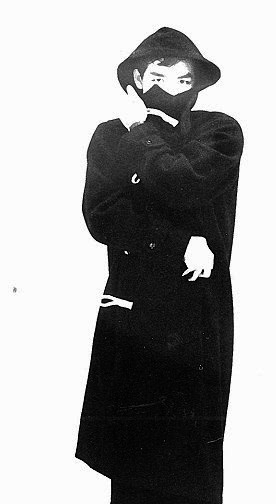I think I know the answer to this trio of questions, given your travels as a journalist, but readers here might not. And so: Have you ever made a literary pilgrimage? What were your experiences? How did this journey influence your writing?
An interesting set of questions, and the answer to the first is both yes and no. I never intentionally go on literary pilgrimages but have been to places where literature plays a profound role in the experience. Hanoi’s Temple of Literature, for instance, is one of the most beautiful temples I’ve ever visited. Etched on fading tablets atop giant stone turtles are the names of the Mandarins, those of enormous talent and will, who passed the Imperial exams, written as poetry forms, over a thousand years ago. I felt a kinship with these names, for I know the effort to stay awake in late evenings or early morns to write the next sentence, to hear aloud the cadence of your own voice, to get one more line in before darkness takes over.
There are places that remind me of books I’ve read. The Notre Dame de Paris of my childhood brought the memory of reading Victor Hugo’s “The Hunchback of Notre-Dame.” A promenade on the Thames and a visit to Shakespeare’s theatre, The Globe, made me recall “Prospero” and “Romeo and Juliet,” and imagine myself in the audience when the plays were first staged.
At my literary agent’s home in Boston, I was shown some of his prize treasures: door knobs that once belonged to Somerset Maugham, and, of course, I had to touch them, and felt—at least in my own imagination—their razor’s edge.
In Belgium once, through a chance invitation to a castle, my hostess—a Vietnamese woman married to the baron—prepared pho soup and the aroma perfumed the ancient halls. She gave me Vietnamese books to read. It was strange feeling: to be both at home and in a completely strange setting.
But perhaps nowhere have I found the act of writing more powerful than in the Whitehead Detention center in Hong Kong, where I covered the stories Vietnamese refugees who, at the end of the cold war, were facing forced repatriation. The experience became part of my first book, Perfume Dreams: Reflections on the Vietnamese Diaspora. But it was there, more than two decades ago, that I witnessed the act of writing as a desperate attempt toward freedom. People who were being sent back to communist Vietnam to an uncertain future wrote and wrote. As papers were hard to get, they told their life stories in tiny words so as to save space on a page. They wrote without having an audience. In the end, many gave me their diaries, their private letters, their testimonies and poetry to take out of the camp. These stories, told as a way to convince the UN of their political prosecution at home, could not be taken back to Vietnam, as they would ironically become evidence that they were “anti-revolutionary.” On the other hand, these writings were not admitted by the UN as evidence of those persecuted in Vietnam. I translated and published a few pieces, but the rest sat for years in my closet, a reminder that for some, refugees and persons who sit in a cell, writing is bleeding.




















